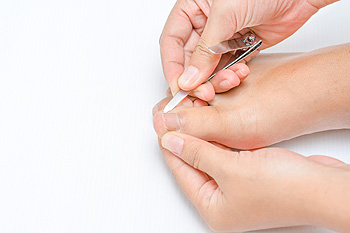 For persistent or severe ingrown toenails that do not respond to conservative treatment, surgical options offer alternative solutions. One common procedure is a partial nail avulsion. In this procedure, a podiatrist, or foot doctor, removes the part of the nail that is digging into the skin. They may apply a chemical called phenol to the nail bed to prevent that portion of the nail from growing back, reducing the chance of recurrence. In recurrent cases, a total nail avulsion might be necessary, which involves the removal of the whole nail. These procedures are typically performed under local anesthesia in a podiatrist's office, allowing for quick recovery time and minimal disruption to daily activities. Surgical intervention not only resolves the pain and infection associated with an ingrown toenail but also helps prevent future issues, along with proper nail care and guidance from a podiatrist. If you are struggling with persistent ingrown toenails, it is suggested that you make an appointment with a podiatrist.
For persistent or severe ingrown toenails that do not respond to conservative treatment, surgical options offer alternative solutions. One common procedure is a partial nail avulsion. In this procedure, a podiatrist, or foot doctor, removes the part of the nail that is digging into the skin. They may apply a chemical called phenol to the nail bed to prevent that portion of the nail from growing back, reducing the chance of recurrence. In recurrent cases, a total nail avulsion might be necessary, which involves the removal of the whole nail. These procedures are typically performed under local anesthesia in a podiatrist's office, allowing for quick recovery time and minimal disruption to daily activities. Surgical intervention not only resolves the pain and infection associated with an ingrown toenail but also helps prevent future issues, along with proper nail care and guidance from a podiatrist. If you are struggling with persistent ingrown toenails, it is suggested that you make an appointment with a podiatrist.
Ingrown toenails can become painful if they are not treated properly. For more information about ingrown toenails, contact one of our podiatrists of Princeton Foot & Ankle Associates. Our doctors can provide the care you need to keep you pain-free and on your feet.
Ingrown Toenails
Ingrown toenails occur when a toenail grows sideways into the bed of the nail, causing pain, swelling, and possibly infection.
Causes
- Bacterial infections
- Improper nail cutting such as cutting it too short or not straight across
- Trauma to the toe, such as stubbing, which causes the nail to grow back irregularly
- Ill-fitting shoes that bunch the toes too close together
- Genetic predisposition
Prevention
Because ingrown toenails are not something found outside of shoe-wearing cultures, going barefoot as often as possible will decrease the likeliness of developing ingrown toenails. Wearing proper fitting shoes and using proper cutting techniques will also help decrease your risk of developing ingrown toenails.
Treatment
Ingrown toenails are a very treatable foot condition. In minor cases, soaking the affected area in salt or antibacterial soaps will not only help with the ingrown nail itself, but also help prevent any infections from occurring. In more severe cases, surgery is an option. In either case, speaking to your podiatrist about this condition will help you get a better understanding of specific treatment options that are right for you.
If you have any questions please feel free to contact our offices located in Princeton, and West Windsor, NJ . We offer the newest diagnostic and treatment technologies for all your foot and ankle needs.
